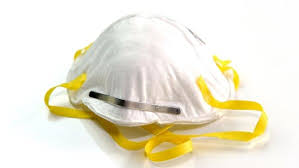Are the N95 Masks Really Effective?

The N95 masks have become a common sight to the people in this time. But can they even perform their only task?
Masks. They have sadly become the new normal in our world today. Many people choose to wear them out wherever they go to keep themselves from being affected by Covid-19 and to stop the spread to others. Some public areas are even requiring customers to wear masks at all times.
But it might be worth it. These masks might be protecting us from catching Covid-19 and spreading it to loved ones. What would we do if the masks did not work like they are said to?
However, this very question may not be hypothetical after all. The N95 Mask, which is said to be the most effective mask in keeping out diseases like Covid, may have flaws that we, as customers, are unaware of. Are we even sure that the masks can protect us from Covid-19?
We have to look at the numbers we are given to answer this question. According to ncbi.nlm.nih.gov, the N95 masks have been tested at 0.3 micron particle levels. The masks have been proven 95 percent successful in this area. This makes it seem like the masks are very reliable in the area of protection.
However, to really understand how effective these masks are, we need to understand the size of 0.3 microns. Google Dictionary defines a micron as “a unit of length equal to one millionth of a meter”. This means that 0.3 microns is about three ten-millionths of a meter. According to ph.ucla.edu, the N95 masks can filter any particles that range from 0.3 microns and larger. This means that 0.3 microns is the minimum size particles that the masks can filter. This seems pretty safe, right? Three ten-millionths of a meter is pretty small.
Our research is not over yet. Now we must test if these masks can protect from Covid-19. According to cdc.gov, Covid-19 is caused by a coronavirus called SARS-CoV-2. In reference to the size of the particles of this coronavirus, ncbi.nlm.nih.gov said that they can range anywhere from 60 to 140 nanometers.
Now it is time to put it all together. Using unit conversions we can determine that there are 1,000 nanometers in 1 micrometer (previously denoted as microns). This means we need to multiply the minimum particle size filtered by N95 masks (0.3 microns) by 1,000. Through this simple equation, we can find that an N95 mask can filter a minimum of 300 nanometers. However, the size of SARS-CoV-2 is 60 to 140 nanometers. This means that if all the information gathered is accurate, the N95 masks are not effective in protecting the wearer from Covid-19. Why even bother with the masks if they do not produce the desired effect?
Different makers of N95 masks will differ in how they make the masks and this may produce a varying number of minimum particle sizes that the masks can filter. However, as far as the information that has been gathered from tests, the majority of N95 masks are not effective in protection from Covid-19. This raises a few questions about whether or not we should even be wearing these masks. Masks may provide a sense of protection to the wearer, but we have to evaluate for ourselves if this sense is false.











